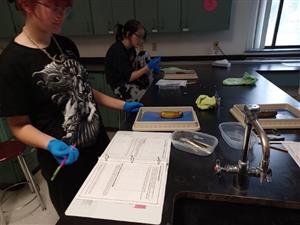- Wilton-Lyndeborough Cooperative School District
- Curriculum, Instruction, and Assessment
Curriculum
Page Navigation
- Curriculum, Instruction, and Assessment
-
Curriculum
-
Curriculum Database
- Art
- English Language Arts
- Family and Consumer Science
- Health
- Industrial Arts
- Library
- Math
- Music
-
Physical Education
- Kindergarten Physical Education
- 1st Grade Physical Education
- 2nd Grade Physical Education
- 3rd Grade Physical Education
- 4th Grade Physical Education
- 5th Grade Physical Education
- 6th Grade Physical Education
- 7th Grade Physical Education
- 8th Grade Physical Education
- High School Physical Education
- Physical Education Electives
- Science
- Social Studies
- Spanish
- TechnoHealth
- Resources
-
Curriculum Database
- Instruction
- Assessment
Curriculum, Instruction, and Assessment
-
The Wilton-Lyndeborough Cooperative School District, SAU #63, is committed to curriculum development that fosters student learning to reach developmentally and grade-level appropriate milestones. The WLCSD K-12 curriculum is dynamic, changing based upon state requirements and research-based practices. Our district uses assessments to develop a data-informed curriculum. The curriculum is designed to provide our students with the critical thinking, problem-solving, and communication skills necessary to confidently navigate the next step in their journey.
Curriculum Articulation
K-12 teachers engage in the ongoing process of documenting, reviewing, and revising the district curriculum. Curriculum documents include competencies and related performance indicators; subject/course scope and sequence of content; and detailed units of study. New Hampshire state law requires that school districts identify "graduation competencies" that are common across the district. Competencies are the desired knowledge or outcome of a course, while performance indicators create a progression of learning expectations leading to graduation. Scope and sequence documents outline the order in which the content of the course (competencies) will be taught. Teachers develop unit plans that are comprised of instructional strategies and resources required to support students in meeting the competencies. If interested, please ask your student's teacher(s) for the current curriculum documents for their grade/course or find them here.

Technology Integration
Thanks to community support over the last several years, the technology department has enabled our students in grades 1-12 to have access to a laptop computer, while students in kindergarten have iPads that are shared among the classes. Our increased availability of technology supports students in becoming more self-directed learners through more personalized pathways, including remediation and enrichment.
Teachers continue to blend the use of technology into teaching and student learning. The use of internet resources allows students to expand their learning, providing them with the ability to research, solve problems, and develop creativity in various learning environments.
Throughout the district, teachers are supporting learning with the use of interactive whiteboards, projectors, and document cameras (which can be used to display student work, math manipulatives, reading material, etc.). These tools allow teachers to develop lessons that are engaging and collaborative.
Senior Project
Seniors at WLC High School complete self-directed learning projects in which they demonstrate the research, problem-solving, and communication skills developed while attending the WLC School District. Successful completion of the Senior Project is a graduation requirement. Additional details can be found in the WLC handbook here.
Standardized Testing
A list of the standardized tests and links to their websites can be found on the district or school websites within the Curriculum menu. Our district assessment calendar can be found in the assessment portion of our website. The New Hampshire State Assessment (NH SAS) gives us information on how grade levels and schools are performing and making progress in the areas of English Language Arts, Mathematics, and Science. The SAT serves as the state test for grade 11. The National Assessment of Educational Progress (NAEP) is only given if a school and grade level is selected by NAEP administrators. At the local level, iReady and other benchmark assessments are used to monitor student progress, guide instruction, and facilitate learning.


